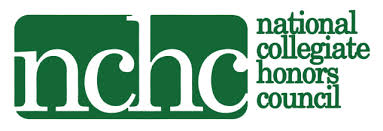Supernatural Sleuths in Popular Culture
Instructor(s): Maria DeBlassie
Course Description
This 200-level course examines the origins and significance of the occult detective, or supernatural sleuth, an archetype birthed from the Spiritualism movement and the parallel invention of detective fiction in the Victorian Era. This figure—sometimes a literal investigator and other times an average person trying to grapple with strange or uncanny experiences—is frequently used in contemporary culture as a way to simultaneously contain or demystify the unknown and acknowledge its vastness. It seems like no small coincidence that the occult detective manifests himself (for he is a primarily white male figure) in direct contrast to—or as a result of—Post-Enlightenment Era's emphasis on reason. What then, is the place or purpose of the paranormal in a post-industrial, post-enlightenment world of logic? In this class we will explore this social tension—wanting to make the paranormal normal while at the same time seeking to make the mundane magical—as well as how this subgenre unmasks the dark side of social conventions, psychological oppression, and society's unrelenting desire to make the intangible tangible. This interdisciplinary course draws on studies in popular culture, psychology, and art and literary criticism to offer a rounded investigation on the cultural phenomena of the occult detective. Lastly, we will critically engage with our own lives in New Mexico—and beliefs about the supernatural—as their own texts. Through this, students will learn how to think critically about pop culture, their lives, and the importance of examining texts through multiple lenses.
Texts
Short Texts: Joseph Sheridan LeFanu's "Green Tea" (1869) H.G. Wells's "The Red Room" (1896) Kate Prichard and Major Hesketh Hesketh-Prichard's "The Story of Baelbrow" (1898) I.T. Mead and Robert Eustace's "The Dead Hand" (1902) Algernon Blackwood's "A Psychical Invasion" (1908) William Hope Hodgson's "The Gateway of the Monster" (1913) Simon R. Green’s “The Spirit of the Thing” (2011) Carrie Vaughn’s “Defining Shadows” (2011) Tanya Huff’s “See Me” (2011) Lilith Saintcrow’s “Holding the Line” (2011) Julie Kenner’s “The Demon You Know...” (2011) Daniel Jose Older’s “Magdelena” (2012) Tricia Owen’s “White Ghost in the City” (2017) Longer Texts: Hellblazer Original Sin, Graphic Novel (1994) Jim Butcher’s Welcome to the Jungle (2008) Rebecca Roanhorse’s Trail of Lightning (2018) Art and Visual Culture: Selected Victorian Postmortem & Spirit Photographs (1800s) Selected Representations of La Calavera Catrina by contemporary local artists Movies: Ghostbusters (1984) Ghostbusters (2016) Television Episodes: The X-Files, “Pilot” (S1E1, 1993) Buffy the Vampire Slayer, “Welcome to the Hellmouth”& “The Harvest” (S1E1 & S1E2, 1998) Supernatural, “Pilot” (S1E1, 2005) & “The Real Ghostbusters” (E5E9, 2009) Sleepy Hollow, “Pilot” (S1E1, 2013) iZombie, "Pilot" (S1E1, 2015)
Requirements
Students will be required to attend class regularly and be prepared for active participation and discussion of course texts. In addition to active participation and assigned readings, assignments include daily short in-class activities and exercises; a short oral presentation and guided discussion on a particular topic or reading for class; two 2-4 page analytical essays on given texts; a group presentation project; and one research project on one or more of the course texts and/or tropesAbout the Instructor(s): Maria DeBlassie
Students will be required to attend class regularly and be prepared for active participation and discussion of course texts. In addition to active participation and assigned readings, assignments include daily short in-class activities and exercises; a short oral presentation and guided discussion on a particular topic or reading for class; two 2-4 page analytical essays on given texts; a group presentation project; and one research project on one or more of the course texts and/or tropes.



Social Media
For news, information, prizes and more fun stuff follow us on our social media!
Honors College Resources